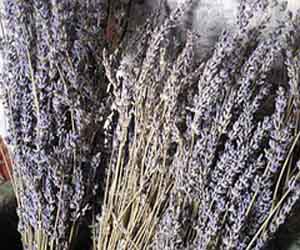



Stress is an inherent part of life, and in our fast-paced world, it often feels like a constant companion. From work pressures to personal responsibilities, the demands of modern living can take a toll on our mental and physical well-being. However, holistic approaches to stress management provide a comprehensive and effective way to alleviate stress and promote overall well-being.
Understanding Holistic Stress Management: Holistic stress management takes a whole-person approach to well-being, recognizing that physical, emotional, mental, and spiritual aspects of our lives are interconnected. It encompasses a range of strategies and practices that address the root causes of stress and aim to bring balance and harmony to all areas of life.
Key Components Of Holistic Stress Management:
Physical Well-Being: The physical aspect of holistic stress management emphasizes the importance of maintaining a healthy body. Regular exercise, a balanced diet, and adequate sleep are fundamental to reducing stress. Physical practices like yoga, Tai Chi, and mindfulness-based activities can also be beneficial.
Emotional Regulation: Emotions play a significant role in stress management. Holistic approaches encourage emotional regulation through techniques like mindfulness, meditation, and deep breathing exercises. By fostering emotional resilience, individuals can better cope with stress.
Mental Well-Being: A healthy mind is vital for managing stress. Techniques like cognitive-behavioral therapy (CBT), positive psychology, and gratitude exercises can help individuals shift their mindset and reduce stress-inducing thought patterns.
Social Support: Holistic stress management acknowledges the importance of social connections. Engaging with friends, family, or support groups can provide emotional support and promote well-being.
Spiritual Well-Being: The spiritual dimension of holistic stress management does not necessarily refer to religious beliefs but rather to a sense of purpose, meaning, and connection with something greater than oneself. Engaging in activities that nourish the soul, such as meditation, reflection, or spending time in nature, can contribute to overall well-being.
Holistic Approaches To Stress Management:
Mindfulness And Meditation: These practices foster present-moment awareness and emotional regulation. Regular mindfulness and meditation sessions can lead to a reduction in stress and an enhanced sense of inner peace.
Yoga And Tai Chi: These physical practices combine movement with mindful breathing and relaxation techniques. They help alleviate physical tension and emotional stress.
Nutrition: A balanced diet rich in nutrients can support the body in coping with stress. Avoiding excessive caffeine, alcohol, and processed foods is essential for stress management.
Sleep: Adequate sleep is crucial for stress management. Establishing a healthy sleep routine and creating a restful sleeping environment can significantly reduce stress.
Exercise: Regular physical activity, such as walking, jogging, or swimming, releases endorphins, which are natural mood lifters. Exercise helps the body manage stress more effectively.
Holistic Therapies: Holistic therapies, including acupuncture, massage, and aromatherapy, can provide relaxation and stress relief. These therapies are often used in conjunction with other holistic approaches.
Time Management: Efficiently managing your time can reduce stress. Prioritizing tasks, setting boundaries, and allocating time for relaxation are essential components of effective time management.
The Benefits Of Holistic Stress Management: Holistic stress management offers a multifaceted approach to well-being. It addresses the underlying causes of stress and promotes a balanced and harmonious life. By adopting holistic practices and making them a part of your daily routine, you can experience reduced stress levels, enhanced emotional and physical well-being, and a more fulfilling life. Ultimately, holistic approaches to stress management provide a pathway to a more balanced and harmonious existence, even in our fast-paced world.


A Path To Nutritional Well-Being
 2. Fullness Awareness: Mindful eating promotes awareness of your body's hunger and fullness cues. Superfoods are often highly nutritious and filling, which means you can satisfy your hunger with smaller portions. Being mindful of these cues can help prevent overeating and promote better portion control.
2. Fullness Awareness: Mindful eating promotes awareness of your body's hunger and fullness cues. Superfoods are often highly nutritious and filling, which means you can satisfy your hunger with smaller portions. Being mindful of these cues can help prevent overeating and promote better portion control.
3. Nutrient-Rich Choices: Superfoods are packed with essential nutrients, so choosing them aligns with the mindful eating principle of selecting foods that are nourishing and beneficial for your body. Rather than mindlessly snacking on empty calories, you're making conscious choices that support your health.
4. Reducing Emotional Eating: Mindful eating encourages you to explore the emotions and triggers behind your eating habits. Superfoods, known for their nutrient profiles and potential mood-enhancing properties, can assist in addressing emotional eating patterns. For example, dark chocolate may provide a comforting and mindful treat during times of stress.
5. Mind-Body Connection: Mindful eating fosters a deeper connection between the mind and the body. Superfoods, with their holistic health benefits, can enhance this connection by promoting mental clarity and physical well-being. This connection can lead to a more intuitive and balanced approach to eating.
6. Gratitude And Appreciation: Mindful eating often incorporates gratitude for the food you consume. Superfoods, with their exceptional nutrient density, can inspire gratitude for the nourishment they provide. Acknowledging the effort and resources that went into producing superfoods can cultivate a sense of appreciation.
 Mindful Breathing: Conscious breathing is at the heart of mindfulness. Paying attention to your breath can instantly bring you into the present moment and help alleviate stress.
Mindful Breathing: Conscious breathing is at the heart of mindfulness. Paying attention to your breath can instantly bring you into the present moment and help alleviate stress.
Observation Of Thoughts: Mindful living entails observing your thoughts as they arise, acknowledging them, and then gently letting them go, rather than becoming entangled in them.
Savoring Experiences: It encourages you to savor the simple joys of life - from the taste of your morning coffee to the warmth of the sun on your skin.
The Stress-Reducing Benefits Of Mindful Living:
Stress Management: By cultivating mindfulness, individuals can better cope with stress. It helps them break free from the cycle of worry and rumination, providing a sense of calm and relaxation.
Improved Emotional Well-Being: Mindful living promotes emotional balance and resilience. It allows individuals to observe their emotions without reacting impulsively, fostering emotional stability.
Better Physical Health: Reduced stress through mindful living can have positive effects on physical health, including lowered blood pressure and improved immune function.
Enhanced Relationships: Mindfulness can lead to better relationships. By being fully present and engaged in your interactions, you can deepen your connections with others.
Increased Productivity: Mindful living can also boost productivity by allowing you to focus on one task at a time and reduce distractions.
Nurturing The Body And Mind
 The Power Of Botanicals
The Power Of Botanicals
Botanicals, or plants, have been used for centuries in traditional healing practices. These plants offer a rich source of natural compounds with various therapeutic properties. Holistic healing with botanicals involves using plants in multiple forms, including teas, tinctures, essential oils, and herbal supplements. Here are some key botanicals commonly employed in holistic healing:
Turmeric: Known for its potent anti-inflammatory and antioxidant properties, turmeric can alleviate conditions related to inflammation, such as arthritis and digestive issues.
Ginger: Ginger's soothing effects on the digestive system and its anti-nausea properties make it a staple in holistic healing.
Echinacea: Echinacea is often used to strengthen the immune system and ward off colds and infections.
Peppermint: Peppermint is renowned for its ability to soothe headaches, improve digestion, and calm the mind.
Lavender: Lavender essential oil is cherished for its calming effects, helping to reduce stress, anxiety, and improve sleep.
Valerian Root: Valerian root is used to treat insomnia, anxiety, and nervousness, promoting a sense of tranquility.
Chamomile: Chamomile's gentle qualities make it an excellent choice for reducing stress and promoting relaxation.






The Power Of Thankfulness

At the heart of gratitude is the acknowledgment of the good things we have, rather than dwelling on what we lack. This shift in focus can be a game-changer in the pursuit of happiness. Gratitude helps us see the glass as half full, fostering a more positive outlook on life. When we practice gratitude, we consciously reflect on the blessings, big or small, that surround us. This act of reflection can enhance our perception of life's abundance and the joy it brings.
Scientific studies have shed light on the connection between gratitude and happiness. Researchers have found that individuals who regularly practice gratitude tend to experience higher levels of life satisfaction and overall happiness. Gratitude activates the brain's reward system, releasing feel-good neurotransmitters like dopamine and serotonin, which contribute to feelings of joy and contentment.
Furthermore, gratitude can act as a buffer against stress and negative emotions. It helps us build resilience by promoting a positive perspective even in challenging situations. When we're confronted with difficulties, acknowledging the things we're grateful for can provide a sense of perspective and emotional stability, making it easier to navigate life's ups and downs.
One of the simplest ways to incorporate gratitude into your daily life is by keeping a gratitude journal. This involves taking a few minutes each day to write down things you are thankful for. Whether it's a loving family, good health, a delicious meal, or a beautiful sunset, the act of recording these positive aspects of life can be a source of happiness in itself.
Gratitude is not only about appreciating what we have; it's also about fostering positive relationships. Expressing gratitude to others can strengthen bonds and create a sense of connection. When we acknowledge and thank people for their kindness, support, or contributions, we not only make them feel valued but also enhance our own sense of well-being through the positive interactions we share.
Nature's Healing Bounty
 A Global Heritage Of Medicinal Plants
A Global Heritage Of Medicinal Plants
The use of medicinal plants is deeply ingrained in human history. Different cultures have harnessed the healing power of local flora, passing down knowledge from generation to generation. Indigenous peoples have traditionally relied on medicinal plants to address a wide spectrum of health issues, from digestive problems to wounds and infections. These traditions persist and continue to be valuable resources for herbal medicine.
Traditional Knowledge Meets Modern Science
The use of medicinal plants is not confined to historical practices; it's a dynamic field that intersects with modern science. In recent decades, there has been a resurgence of interest in traditional herbal medicine, prompting extensive scientific research into the efficacy of medicinal plants. This scientific validation has led to the development of herbal supplements and pharmaceutical drugs derived from natural plant compounds.
Common Medicinal Plants And Their Uses
Aloe Vera: Aloe vera is renowned for its soothing properties and is often used to treat burns, sunburn, and skin irritations.